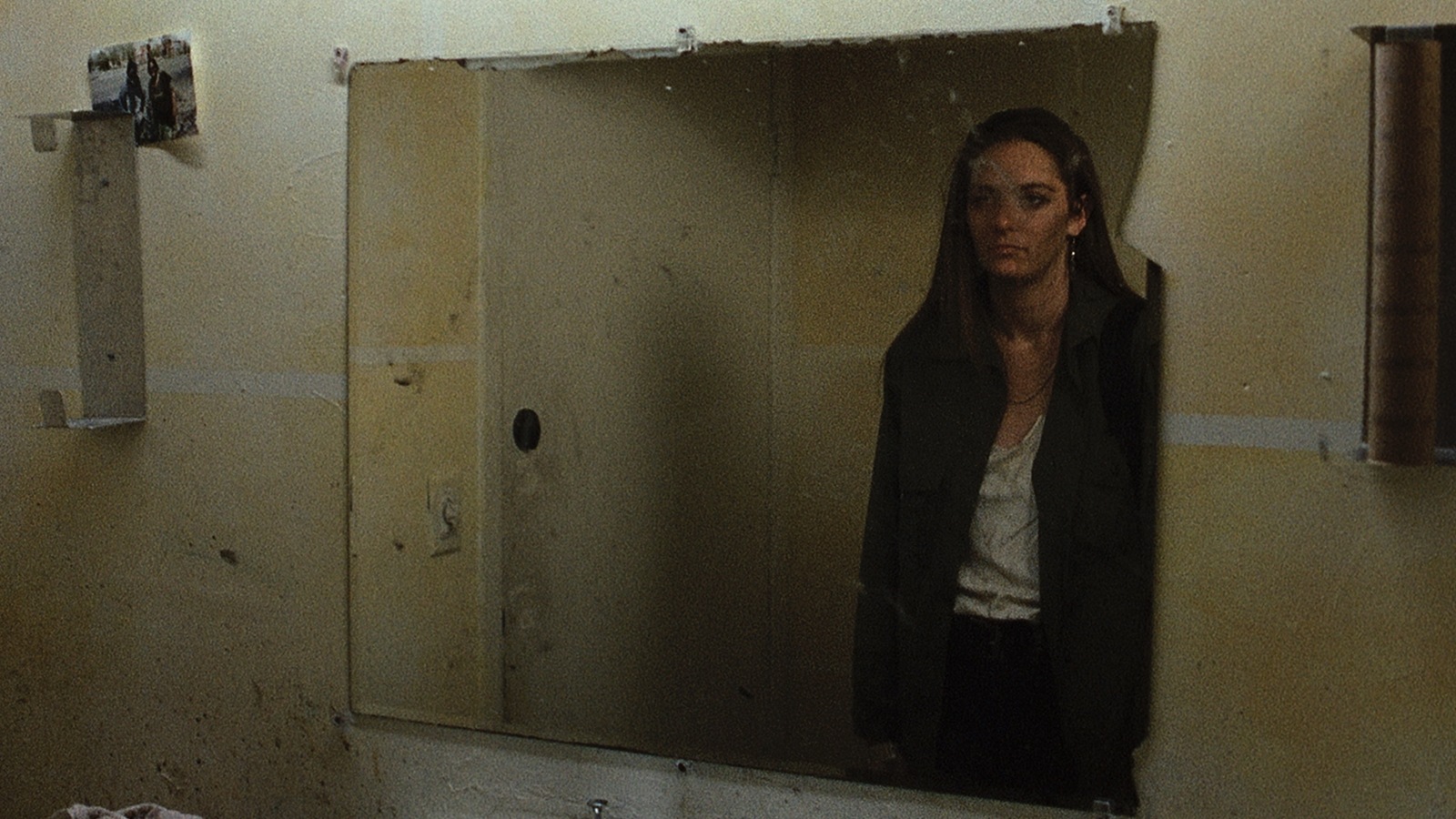The 2022 Seattle International Film Festival begins on on April 14th and runs through April 24th. UW Film Club will be covering as many films as possible so that you know which films to see! Throughout the festival, this article will be regularly updated with capsule reviews for festival films with the newest additions at the top. Check back every few days to see what’s new!
Riotsville, USA

The United States of America: a country in which single-city police forces rank amongst the highest-funded militaries in the world, and small-town police forces boast stocked arsenals of armored personnel carriers and military-grade equipment. Riotsville, USA — a new documentary from director Sierra Pettengill and writer Tobi Haslett — attempts to trace back the lineage of American police militarization, while also examining particular understudied elements of the late 1960s and presenting a bitingly heterodox history of events. Constructed entirely of archival footage from the period – apart from occasional, often overly-poeticized bouts of narration over abstracted images – the film presents a tight and clear-cut narrative of how police militarization rose was implemented to quell the riots of the late 60s, as the American establishment rushed to do anything other than actually address any of the social or economic grievances of the protestors. The film’s examination of overlooked historical threads like the Kerner Commission and the 1968 Republican National Convention in Miami provide a unique historical perspective, and, in the end, make it an incredibly insightful and worthwhile documentary that provides excellent historical context to the continued violence of police today.
4/5 STARS
— PJ Knapke
You can visit SIFF’s page on Riotsville, USA here. The film was screened in-person on April 21 and is not able to stream during the festival.
Zero Fucks Given
Although Zero Fucks Given is being promoted as a comedy, there’s very little that’s funny about the life of the film’s protagonist, Cassandre. As a flight attendant for a low-budget airline, Cassandre spends her days enduring the indignities and injustices of a job in the service industry. Portrayed by Adèle Exarchopoulos, who is best known for her breakthrough role in the 2013 film Blue is the Warmest Color, the lethargic and despondent Cassandre supplements her time with clubbing, drinking, and hooking up, and she is careful not to build close relationships or examine her feelings too deeply. Zero Fucks Given doesn’t have much narrative tension, and it can at times take on the monotony of Cassandre’s work as a flight attendant, but the film’s lethargically paced plot helps to embody Cassandre’s deep sense of despair. Co-directors Emmanuel Marre and Julie Lecoustre take on such pressing matters as grief, depression, corporate culture, and the difficulty of making meaningful connections in our isolating modern era. Zero Fucks Given is worth a watch for Exarchopoulos’s raw portrayal of depression, the journey towards self-fulfillment, and the struggle to find what there is to give a fuck about.
3.5/5 STARS
— Piper Coyner
You can stream Zero Fucks Given here during the remainder of SIFF. You can also watch the film on MUBI, where it is streaming.
The Blind Man Who Did Not Want to See Titanic

Right from the beginning, The Blind Man Who Did Not Want to See Titanic immerses its audience in the experiences and struggles of the titular blind man, Jaako. The film’s opening credits are written in braille and read by a speech synthesis voiceover, and for the entirety of the film’s sleek 82 minute runtime, the camera remains in shallow focus and never strays far from Jaako’s head. Director Teemu Nikki actually created the role of Jaako specifically for Petri Poikolainen, whose theater performances had impressed Nikki before the actor’s diagnosis with multiple sclerosis and eventual vision loss. But while The Blind Man strives to portray Jaako’s experience the best that it can in an inherently visual medium, the film is not a sad story focused on its protagonist’s disability. Instead, this Finnish film is more of a rom-com, and it centers around Jaako’s relationship with a cancer patient named Sirpa. The two have never met in person, but they talk on the phone multiple times each day. The film’s comically long title refers to how Sirpa continually teases Jaako — a cinephile who collected DVDs before his vision loss — about his refusal to watch the 1997 film Titanic. When Sirpa receives news that her cancer has progressed rapidly, blind wheelchair-user Jaako decides to make a three-hour train trip to see her. His journey to meet the woman he loves ends up being much more exciting than he had anticipated. The Blind Man Who Did Not Want to See Titanic is an uplifting film whose small scope highlight the power of love and perseverance.
3.5/5 STARS
— Piper Coyner
You can stream The Blind Man Who Did Not Want to See Titanic here for the remainder of SIFF.
Bernstein’s Wall

Perhaps most famous for his music in the 1961 and 2021 films West Side Story, Leonard Bernstein has been a staple in American musical entertainment. Perhaps lesser well known about Bernstein are his own struggles and involvement in American politics though World War II, the McCarthy Era, the Civil Rights Era, and the Vietnam War, particularly as a homosexual and American Jew. Bernstein’s Wall takes its audience on a marvelous journey through this history in an intimate examination of Bernstein’s life and artistry while pondering questions about him, his art, and his legacy. This documentary is a must see for any Bernstein fan.
— Stephanie Chuang
4/5 STARS
You can visit SIFF’s page on Bernstein’s Wall here. There will not be another showing during the remainder of the festival.
Petite Maman

Celine Sciamma has truly outdone herself once again with Petite Maman. In a touching story, Sciamma explores a relationship between daughter, mother, and grandmother that simultaneously spans decades and just a few days. Petite Maman is short, sweet and healing all wrapped in one; it is impossible not to be entranced by lead actresses Josephine and Gabrielle Sanz, who are a delight to see on screen. At the end of the day, Petite Maman is an outstanding tale about the generational legacy and connection between mother and daughter.
— Stephanie Chuang
4.5/5 STARS
You can visit SIFF’s page on Petite Maman here. There will not be another showing during the remainder of the festival.
Small Body

In her devastating and hauntingly beautiful feature debut, Laura Samani tackles a poignant story of love, grief, and sacrifice, set in the turn of the 20th century in northern Italy. Newcomer Celeste Cescutti portrays Agata, a young fisherman’s wife who is pregnant with her first child. When Agata’s daughter is stillborn, the local priest says, because the baby never lived outside of the womb, her soul has no chance of going to heaven and will instead reside in purgatory forever. In defiance of this Catholic belief, Agata undergoes a journey north to a mystical sanctuary where a dead child can be revived long enough to be baptized and given a name. Small Body is guaranteed to elicit tears for its illumination of the depth of a mother’s love, and the hardships experienced by women throughout history.
— Piper Coyner
4.5/5 STARS
You can stream Small Body here for the remainder of SIFF.
Barbarian Invasion

This genre-defying film from writer/director/actor Tan Chui Mui follows an actress who comes out of retirement to star in a Malaysian movie based on the Bourne Identity. As a film satire, the story fills its runtime with laughs and references to many films beloved by cinephiles (Blade Runner and Mulholland Drive, to name a couple). However, its tonal shifts and blurry boundaries between fact and fiction can perplex audiences at times. Ultimately, its audacity (especially for a Malaysian low-budget independent feature film) and entertainment value makes Barbarian Invasion an interesting watch.
— Rohan Patel
3/5 STARS
You can visit SIFF’s page on Barbarian Invasion here. There will not be another showing during the remainder of the festival.
Invisible Demons

This personal documentary from Rahul Jain focuses on the devastating impacts of climate change in India’s capital territory, Dehli. Rather than focusing on an individual’s experience, the 70-minute feature film captures slices of daily life with visuals that seem to spring from the imagination of future dystopias. Jain, a self-proclaimed “air-conditioned child,” quietly lets these images show how many forces from capitalism to spirituality have allowed these smog-filled landscapes to harm and kill millions of people in Dehli. Even if the “cli-fi” genre may be overwrought and uncomfortable, Invisible Demons brings a refreshing style to the genre’s expectedly urgent, yet poignant message.
— Rohan Patel
3.5/5 STARS
You can visit SIFF’s page on Invisible Demons here. There will not be another showing during the remainder of the festival.
The Innocents

Written and directed by the co-writer of The Worst Person in the World, The Innocents manages to pack together compelling child performances and an eerie atmosphere to deliver a tight, fantastic horror film. Centering around four children who discover innate supernatural abilities, the film empathically depicts their journey of realizing and forging their moral compasses. Unable to foresee the gruesome consequences of their decisions, the film slowly builds a high-tense, high-stakes narrative that falls to the mercy of its protagonists’ own unpredictable emotions. If you are looking for a refreshing take on children-based supernatural horror (or superpowers, for that matter), then The Innocents should be a must-watch.
— Rohan Patel
4/5 STARS
You can visit SIFF’s page on The Innocents here. There will not be another showing during the remainder of the festival.
Resurrection

Resurrection is a deeply anxiety-inducing thriller from director Andrew Semans. Largely carried by the presence of its two main stars – Rebecca Hall and Tim Roth – the film presents a harrowing portrait of a gradual descent into insanity as a result of the re-emergence of past traumas. The film examines the vice grip that past horrors can have on our lives, and how people can fall into deeply abusive relationships and lose their hold on reality. In this sense, the incredibly intense performance from Hall and the deeply creepy performance from Roth make the film highly evocative throughout, even if it occasionally flounders and loses direction in moments.
— PJ Knapke
3.5/5 STARS
You can visit SIFF’s page on Resurrection here.
Speak No Evil

In this highly disturbing horror film by writer/director Christian Tafdrup, a Danish family visits a Dutch family in the countryside after meeting at a vacation villa. As their weekend visit goes on, a series of highly uncomfortable interactions soon turns into a disturbing nightmare that digs into humanity’s deep-rooted need for politeness and morality. Both Tafdrup and the actors of the film expertly craft great moments of black comedy, demonstrating patience that doesn’t force genre and shock onto the audience. If you’re looking for a fantastic horror film, designed to disturb, cause laughter, and provoke thought, then be sure to check out Speak No Evil.
— Rohan Patel
4.5/5 STARS
You can visit SIFF’s page on Speak No Evil here.
A Tale of Love and Desire

In her second feature film, Tunisian director Leyla Bouzid tells a tale of cultural identity, familial obligations, self-denial, and the power of literature, not to mention the titular love and desire. Sam Outalbali (Rahim from Sex Education) plays 18-year-old Ahmed, a shy and awkward literature student at the Sorbonne who is dumbstruck by the beauty and confidence of Tunisian student Farah, played by Zbeida Belhajamor. The two bond over their shared North African heritage (Ahmed’s parents fled Algeria), and their class on Arabic love poetry increases the sexual tension between them. In this deeply introspective and erotic coming-of-age film, Ahmed explores his sexual desire, while also reflecting upon the limits and restrictions of his faith. A Tale of Love and Desire deftly works its many themes into a wide-ranging and powerful film.
— Piper Coyner
4/5 STARS
You can view SIFF’s page on A Tale of Love and Desire here.
The Passenger

In the lineage of the extraterrestrial-horror genre, The Passenger delivers an excellent, horrifying creature film combined with the charm of a low-budget feature. It follows Blasco, an almost-sleazy van driver, charged with taking three women across Spain. But when they hit a woman standing on the road, they discover the new presence of an alien that threatens to kill them all. Directors Raúl Cezero and Fernando González Gómez use fantastic practical makeup effects and terrific camerawork to keep the action setpieces thrilling while giving a real voice and creepiness to the film itself. Though the film has a few pacing and character issues, any horror fan should surely keep an out for The Passenger.
— Rohan Patel
3/5 STARS
You can visit SIFF’s page on The Passenger here.
Radiograph of a Family
 Radiograph of a Family is a lyrical documentary that utilizes images from director Firouzeh Khosrovani’s family archives in order to tell a tale of love, religion, and politics. The film is led by a simple yet evocative voiceover narration that guides the audience through Khosrovani’s family history, spanning their beginnings in Iran and time abroad in Geneva. Her father, a radiologist, was 20 years older than her mother Tayi, a more traditional woman who, despite her love for her husband, never quite understood his affection for European culture. The fault lines in their marriage grew deeper as the Iranian Revolution neared, and Tayi and her husband found themselves on opposite sides of the political debate between modernism and traditional Islamic rule. Khosrovani adds texture to the neutral voiceover and old photographs by incorporating imagined conversations between her parents. Radiograph of a Family is often innovative and sometimes eerie, but above all, it is an ode to Khosrovani’s parents, and to the Iran of bygone years.
Radiograph of a Family is a lyrical documentary that utilizes images from director Firouzeh Khosrovani’s family archives in order to tell a tale of love, religion, and politics. The film is led by a simple yet evocative voiceover narration that guides the audience through Khosrovani’s family history, spanning their beginnings in Iran and time abroad in Geneva. Her father, a radiologist, was 20 years older than her mother Tayi, a more traditional woman who, despite her love for her husband, never quite understood his affection for European culture. The fault lines in their marriage grew deeper as the Iranian Revolution neared, and Tayi and her husband found themselves on opposite sides of the political debate between modernism and traditional Islamic rule. Khosrovani adds texture to the neutral voiceover and old photographs by incorporating imagined conversations between her parents. Radiograph of a Family is often innovative and sometimes eerie, but above all, it is an ode to Khosrovani’s parents, and to the Iran of bygone years.
— Piper Coyner
3.5/5 STARS
You can visit SIFF’s page on Radiograph of a Family here.
Charlotte

Charlotte follows the life of Jewish painter Charlotte Salomon as she grows up and comes of age in 1930s and 1940s Berlin. Most famous for her collection of 1000+ paintings titled Life? or Theater? that she left behind before perishing in a concentration camp, the film does adequate justice to Salomon’s legacy of what is often considered the first graphic novel. The formation of Charlotte’s art is shown alongside her struggles with her family, her identity, and some shocking truths. Though it isn’t the most outstanding film of the year, there is still much that can be gained from Salomon’s story.
— Stephanie Chuang
3/5 STARS
You can visit SIFF’s page on Charlotte here. It will be showing again at the SIFF Film Center in early May.
Inu-Oh
Inu-Oh takes bold steps to tell a fantastical tale about a theater troupe in 14th-century Japan. Filled with magic, the Shogun, and music, Inu-Oh‘s biggest failure is perhaps its attempts to draw its audience in with its music. Several sequences of the theatre troupe performing are backed by long, repeating, and deafning tracks of rock music. Thus, while the audience sees a theater troupe playing on traditional Japanese instruments, they hear a raucous mix of electric guitar and bass. While this might have been interesting for a short sequence, the jarring mix comes back again and again in the film, distracting from what I presume could be a very interesting story. Ultimately, it just doesn’t work out; the attempt to mesh the music with the story proves to be too dissonant for Inu-Oh to tell its tale.
— Stephanie Chuang
2.5/5 STARS
You can view SIFF’s page on Inu-Oh here.
Tug of War
 For a film with such a competitive-sounding title, Tug of War is mostly free of conflict or intrigue. Colonial Zanzibar, with its swath of multiethnic subjects under the thumb of the British Empire, seems like it would be a prime site for a striking story, especially with Communist agitators looking to push back against local police forces at every turn. Throw in a doomed love story between a woman fleeing a forced marriage and a rabble-rouser getting in over his head and the stage seems set for a dramatic set of events. Sadly, Tug of War can’t integrate all of these elements into a narrative that feels encompassing or engrossing; instead it leaves most of the characters and plot undeveloped and only gives the audience some interesting lighting and music to tide them over. In the end, the images of struggle the title inspires are merely aspirational, and little more.
For a film with such a competitive-sounding title, Tug of War is mostly free of conflict or intrigue. Colonial Zanzibar, with its swath of multiethnic subjects under the thumb of the British Empire, seems like it would be a prime site for a striking story, especially with Communist agitators looking to push back against local police forces at every turn. Throw in a doomed love story between a woman fleeing a forced marriage and a rabble-rouser getting in over his head and the stage seems set for a dramatic set of events. Sadly, Tug of War can’t integrate all of these elements into a narrative that feels encompassing or engrossing; instead it leaves most of the characters and plot undeveloped and only gives the audience some interesting lighting and music to tide them over. In the end, the images of struggle the title inspires are merely aspirational, and little more.
— Luke Wilhelm
2/5 STARS
You can visit SIFF’s page on Tug of War here.
Neptune Frost

2022 has proven to be a year for movies that completely transfix me, yet by the end leave me utterly lost with nothing to say. (In a good way.) Earlier this month it was Memoria, last night it was Neptune Frost—for very different reasons. This overwhelming Afrofuturist musical is engaging in every moment with writing that, if I had read it in a book, would ruminante on for several minutes before turning the page. But there’s no time to pause here; the story by co-director Saul Williams quickly jumps from moment to moment, image to image, dream to dream. Cinematography by the other co-director Anisia Uzeyman puts an emphasis on ordinary landscapes cast in strange tones, and the actor’s faces in brilliant purple and yellow lights. Go watch this movie, then put a brick through the window of a mining company headquartered in Toronto.
— Luke Wilhelm
4/5 STARS
You can visit SIFF’s page on Neptune Frost here.
Warm Blood

For many of us, death lies in wait around the corner. But what about those who have already seen death? Those who have embraced him fully and kept going? Those who are aware of the blood pumping through their veins every second, aware of the sugar in their food and the lead in their water? With a bright smile and stiffened hand the world greets them, and those strong enough to grasp it hold tight. For the nights are long and the dust is thick, but there’s always something one can find to make everything worthwhile. Maybe it’s a hope or a high, or maybe it’s just knowing that the sun will light these stoney fields and smiling billboards again.
— Luke Wilhelm
5/5 STARS
You can visit SIFF’s page on Warm Blood here.
Doula
This delightfully irreverent comedy starring Troian Bellisario, co-writer Arron Shiver, and Will Greenberg is a low-budget flick which follows Deb and Silvio (played by Bellisario and Shiver respectively) as they prepare for the birth of their first child. Silvio is adamant about a home birth whereas Deb is not so sure, especially following the passing of their trusted doula. Silvio thinks he has found the answer in Sascha, an unlikely male doula who becomes close with Deb despite initial tension over Silvio’s hiring of Sascha without preciously consulting his girlfriend. What ensues is a delightful traipse through prenatal tribulations exacerbated by the unique relationships between the three leading characters. Lead actress Troian (who was actually pregnant during production) delivers a moving performance whilst simultaneously flexing her impressive comedic chops, aided by the script co-written by Shiver and Will Janowitz. The direction of Cheryl Nichols infuses a desperately needed feminine tenderness and perspective toward the protagonist in a script written by two men about pregnancy, and it is her lens that ultimately holds the film together.
— Maddie McDougall
3/5 STARS
You can visit SIFF’s page on Doula here.
The Sacred Spirit

The Sacred Spirit is an oddly relevant satire about a group of people in Spain who come together to discuss their mutual belief in UFOs. However, after their leader dies, one member – José Manuel – must carry with him a secret that has been passed only to him and may hold the key to finding his missing niece. This quirky meditation on the nature of cult mentality takes an interesting route at exploring tricky subject matter, guided by the stylistic direction of Chema García Ibarra. Ibarra is most successful in establishing an eerily discordant tone of biting satire mixed with the supernatural that creates a unifying atmospheric experience throughout that will leave you scratching your head. In fact, Ibarra’s direction is probably the most noteworthy aspect of this film, giving tonal justification to the atypical pacing and subdued performances that may have been too distracting had it not been for his vision. However, these are choices that definitely will make the film have to find its audience as not all may be willing to bare with the subdued pacing and stick it out until the end of the runtime.
— Maddie McDougall
2.5/5 STARS
You can visit SIFF’s page on The Sacred Spirit here.


